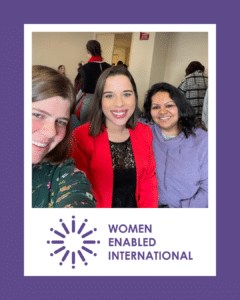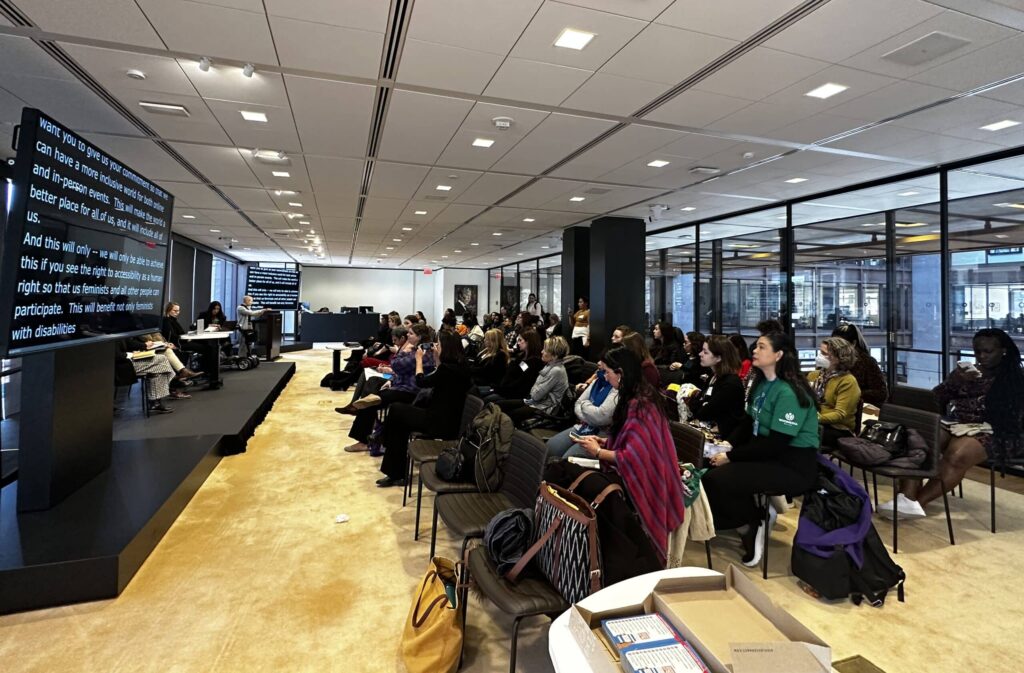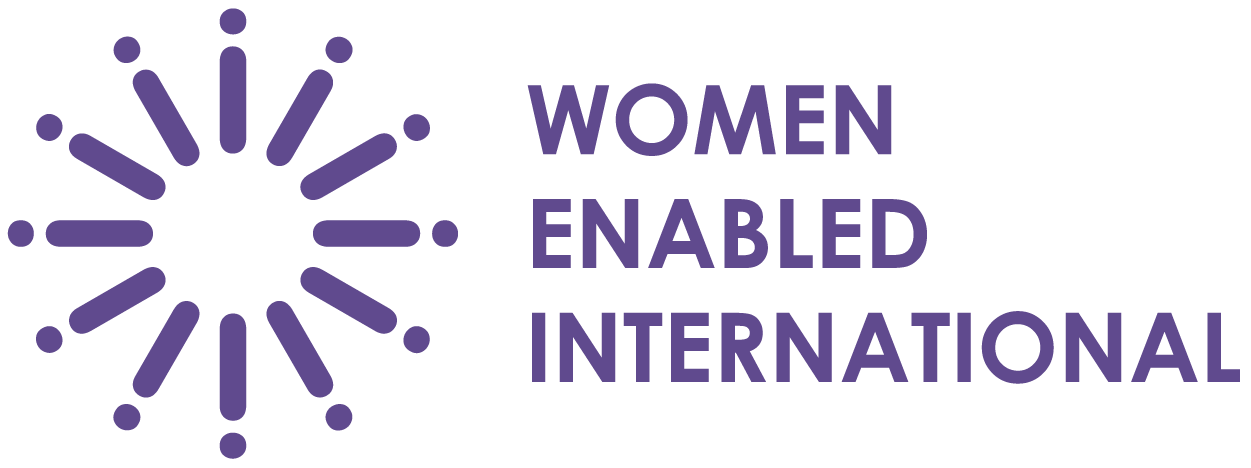
For two weeks in March, the 67th Session of the Commission on the Status of Women (CSW67) took place in New York City with the theme, “Innovation and technological change, and education in the digital age for achieving gender equality and the empowerment of all women and girls.” WEI brought a critical perspective to side events, panel discussions, networking, and social media, i.e. that accessibility is not just about accommodating disability – it’s about including and valuing the perspectives and experiences of feminists with disabilities.
Throughout CSW67, WEI staff took every opportunity to lift up the Feminist Accessibility Protocol and to advocate for accessible technology as necessary to ensure all feminists can participate fully and equally.
Our Flagship Event
WEI’s flagship event CSW engagement this year, “Feminist Accessibility Protocol – Committing to Disability-accessible and Inclusive Technology and Innovation for Gender Equality and Human Rights,” attracted 45 feminist actors, disability advocates, and funders. The event, held at the Ford Foundation Center for Social Justice, was moderated by WEI’s Maryangel Garcia-Ramos and included insights from the UN Women Executive Coordinator for the Generation Equality Forum and representatives of the IGEC, the Permanent Mission of Finland, the Disability Rights Fund, and CREA.

The event introduced the groundbreaking set of commitments in the Feminist Accessibility Protocol [LINK] and highlighted good practices in utilizing technology and innovating to ensure an accessible, inclusive, valuable, and safe space for feminists with disabilities. In-person accessibility features included English CART for panelists on personal devices and projected for the audience, simultaneous English-Spanish translation for Spanish-speaking panelists, consecutive English-Spanish interpretation for audience members, and American Sign Language in-person interpretation for the event.
There has been a strong response to the Feminist Accessibility Protocol so far, including 155 endorsements from organizations of persons with disabilities working at the intersection of gender and disability and key feminist stakeholders, such as Women Deliver, CREA, AWID, Liliane Foundation (the Netherlands), Womankind Worldwide, PRBB Foundation, Center for Reproductive Rights, Women Engage for a Common Future (WECF), and Alliance for Feminist Movements.
Other events where WEI team members presented included:
- Advancing Feminist Movements and Leadership: Bringing Generation Equality to the Local Level, organized by United Cities and Local Governments
- Gender Equality, Disability and the Digital World, organized by Women with Disabilities Australia
- Women with Disabilities, Access to Technology and Equality, organized by Shanta Memorial Rehabilitation Centre
- Women with Disabilities Crossing the Digital Divide, organized by the International Convocation of Unitarian Universalist Women
- Feminists say “Enough!” Countering Anti-gender Forces and Fostering Collective Resilience, organized by CREA
Ongoing Work

Further, WEI and the Inclusive Generation Equality Collective launched two ongoing social media campaigns:
#CommitToAccess – encourages prominent feminists to commit to ensuring the accessibility and inclusion of feminists with disabilities in feminist spaces by signing the Feminist Accessibility Protocol!
#AccessInPractice – asks CSW attendees to share their accessibility experiences, highlighting good practices and identifying barriers, with the aim of seeing the Feminist Accessibility Protocol in action.
Please join these campaigns and promote the Protocol!
